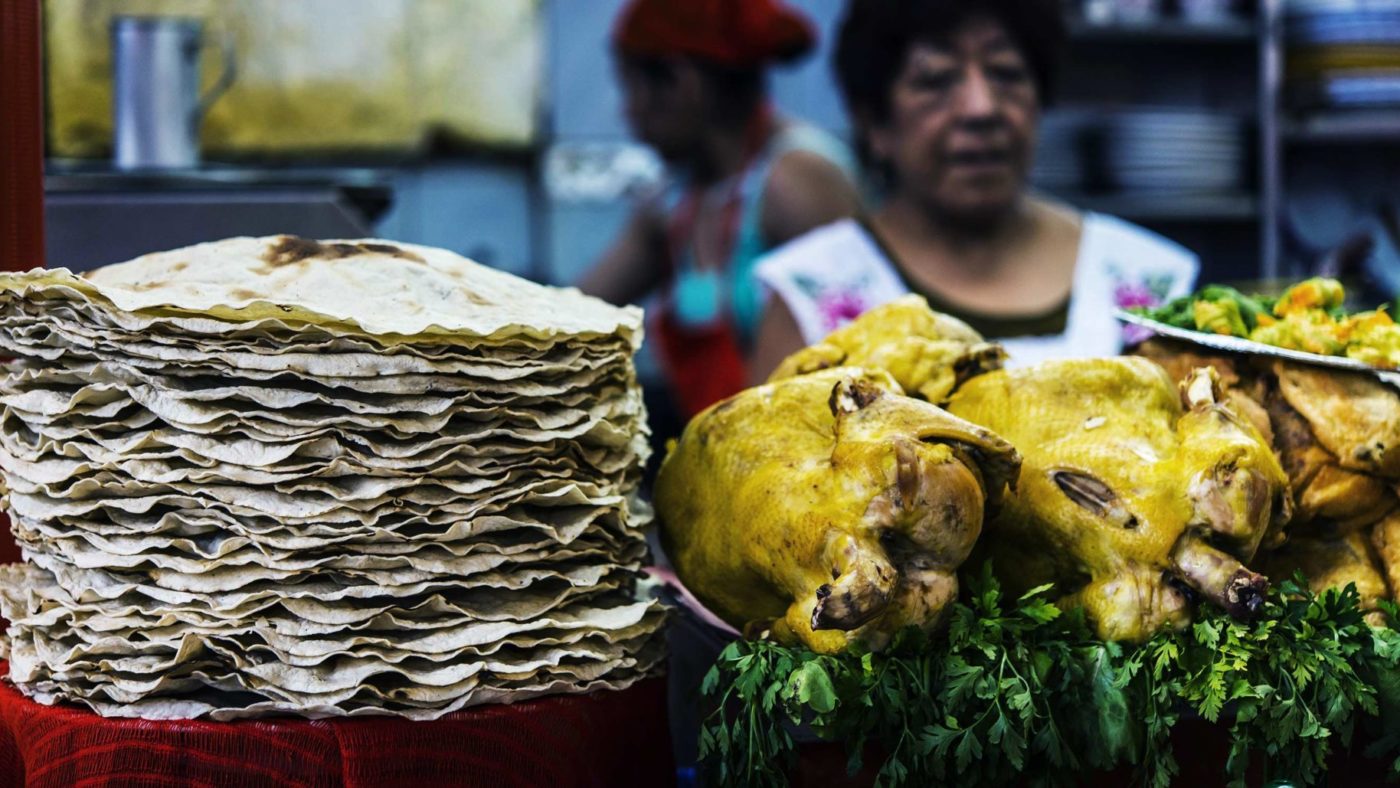Netflix’s Street Food appears at first to just be a series about grilled meat, fresh empanadas and quick bites from food carts around the world. The latest series, set in Latin America, is a reminder though that behind every business is a personal story — overcoming loss, challenging your limits, not accepting the pernicious idea of fate, the power of human creation and providing for your family.
This might be one of the most powerful neoliberal series that has ever been produced, even if that was not the directors’ intention. It’s a global celebration of progress as well as the power of business ownership to defy poverty. It’s an important reminder that innovation is not just the purview of high profile tech start-ups, as much as they contribute, but families and individuals taking risks.
Each episode is set in a single city and celebrates unique local dishes, but also the food of the associated country. You don’t get flashy recipes delivered by polished beautiful chefs. You meet owners of the street carts, the in-market booths, the beach sellers.
In Oaxaca (Wahaca) we meet Valeria Hernández – better known as Doña Vale – and her memelas. From a stall in the Mercado Central de Abastos she sells little blue corn flatbreads, slightly thicker than a tortilla, made with lard and served with spicy tomatillo salsa and cheese.
Her life didn’t start in Oaxaca. She was born in a huge family in the Mexican countryside. When she was 24, a fire raged on the farm and it burned to the ground, leaving her and her family with nothing. They arrived in the city without even changes of clothes. There, she began working washing pots and met a boy who insisted they go on a date. She said no. So he demanded again. Her father said yes. She moved towns, got pregnant, realised her child’s father was doing nothing with his life and decided to do something about it.
She took herself and her baby back to Oaxaca and bought a little stove, a flat top and some corn maize. So little money was available that Dona Vale memelas couldn’t afford plates, so her memelas were served on thick waxy leaves. Her salsa was made unique by the addition of dried chillies that the stall holder next to her discarded at the end of the day. The other stall holders hate her, she’s competition. They want her gone, but she will not budge.
Slowly, and over many years, perfecting the recipe translated into loyal customers. Then tourists. Then chefs. Now Netflix viewers.
The chile morita salsa that Dona Vale serves on her memelas is unique. Created by her, using her own talents, sold and marketed by her grit and determination, it has made her famous around the world.
A woman who lost everything in a fire, who sat trembling before her God, who said no to a life in hock to a man she did not love, who decided to provide for her young daughter and herself. She took control of her destiny by building a business.
Stories like hers are why Barack Obama’s quip that “if you’ve got a business – you didn’t build that” is so rage-inducing. Because, yes, she did, from nothing. A single mother with barely a penny to her name and no backing grew her business through sheer graft, focus and no little savvy – and now she’s reaping the rewards.
That’s what makes Street Food such a powerful paean to the power of private property, and the social purpose of letting ordinary people make their own decisions, often in the face of pettifogging government bureaucracy.
The show is beautifully made too, each frame as inviting as one of Dona Vale’s famous memelas. Watch it, savour it now – because in the last episode of the season, on the streets of Bolivia’s La Paz, face masks begin to appear on vendors and customers.
The pandemic has arrived. The hardships the women and men that you meet throughout are about to be compounded. The stories you hear in each of the episodes are all individual: rejection and loss, an abusive husband, coming out, violence from the police, racism, the city council shutting their shops. But now, across the continent and across the world they face a threat together. Both from the disease itself but to their livelihoods, as tourists stay away and people stay home.
As the credits roll, I can’t help but wonder how many of these businesses will survive through – and thrive after – the pandemic. With millions of people facing unemployment and ruin, it’s likely they will be joined by new competitors. That’s no bad thing, of course. The world turns and innovators emerge, where they’re allowed to do so. In a decade we’ll see new weathered faces who’ve fought battles of their own during this crisis and come out stronger.
I look forward to seeing them.
Click here to subscribe to our daily briefing – the best pieces from CapX and across the web.
CapX depends on the generosity of its readers. If you value what we do, please consider making a donation.


